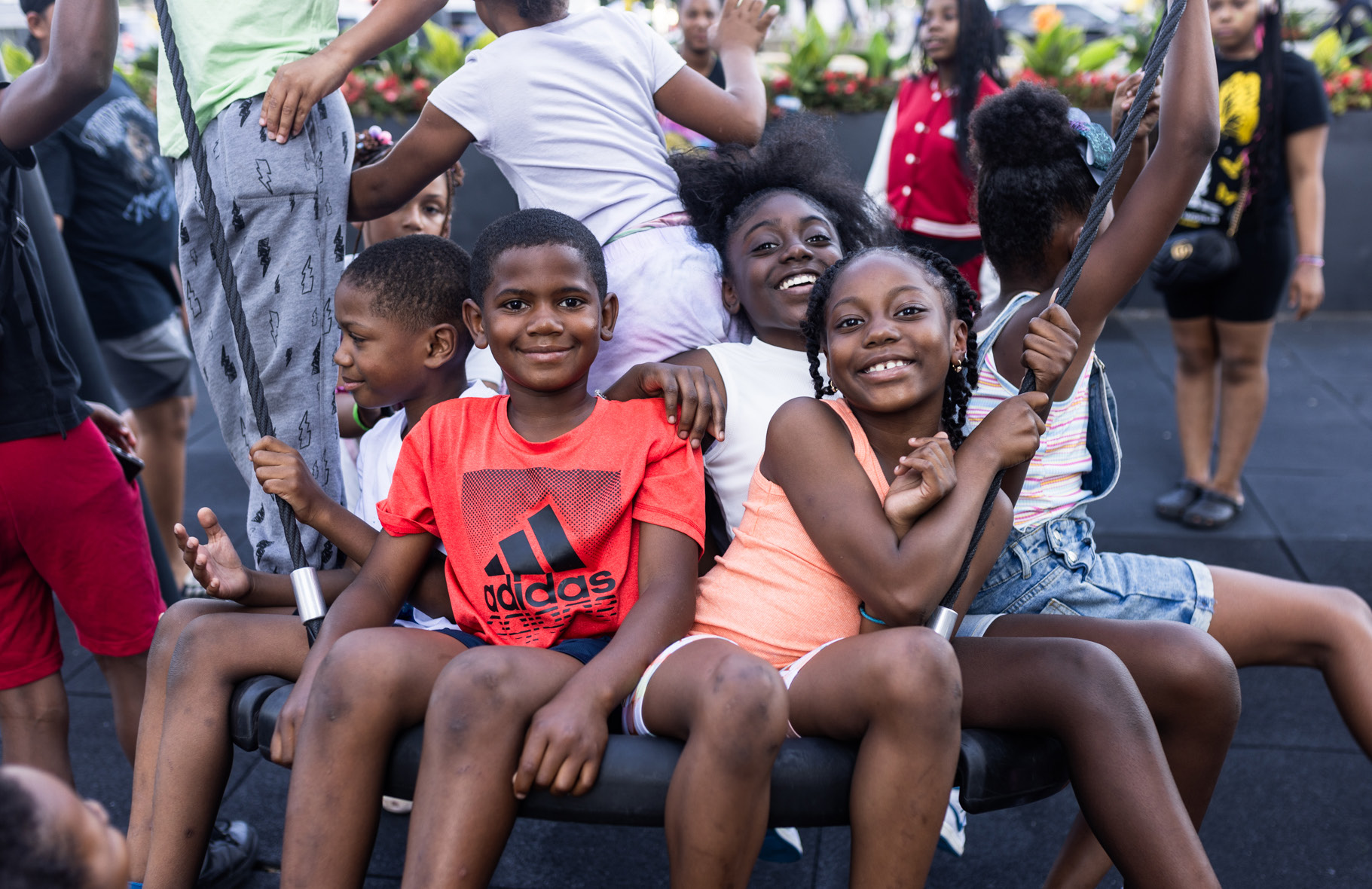How Detroit's Downtown has Grown from the Riverfront to the Mile Roads
Just over 10 years ago, Downtown Detroit was marked by vacant towers, shuttered storefronts and empty streets—once-thriving business corridors slowly fell silent. Local entrepreneurship was nearly absent, and investment felt like an empty hope.
But a shift began. Detroit focused to reclaim and reimagine the riverfront and expand outwards. The riverfront showed how strategic investment in public spaces could restore civic pride, attract residents and signal that Detroit's core was worth celebrating.
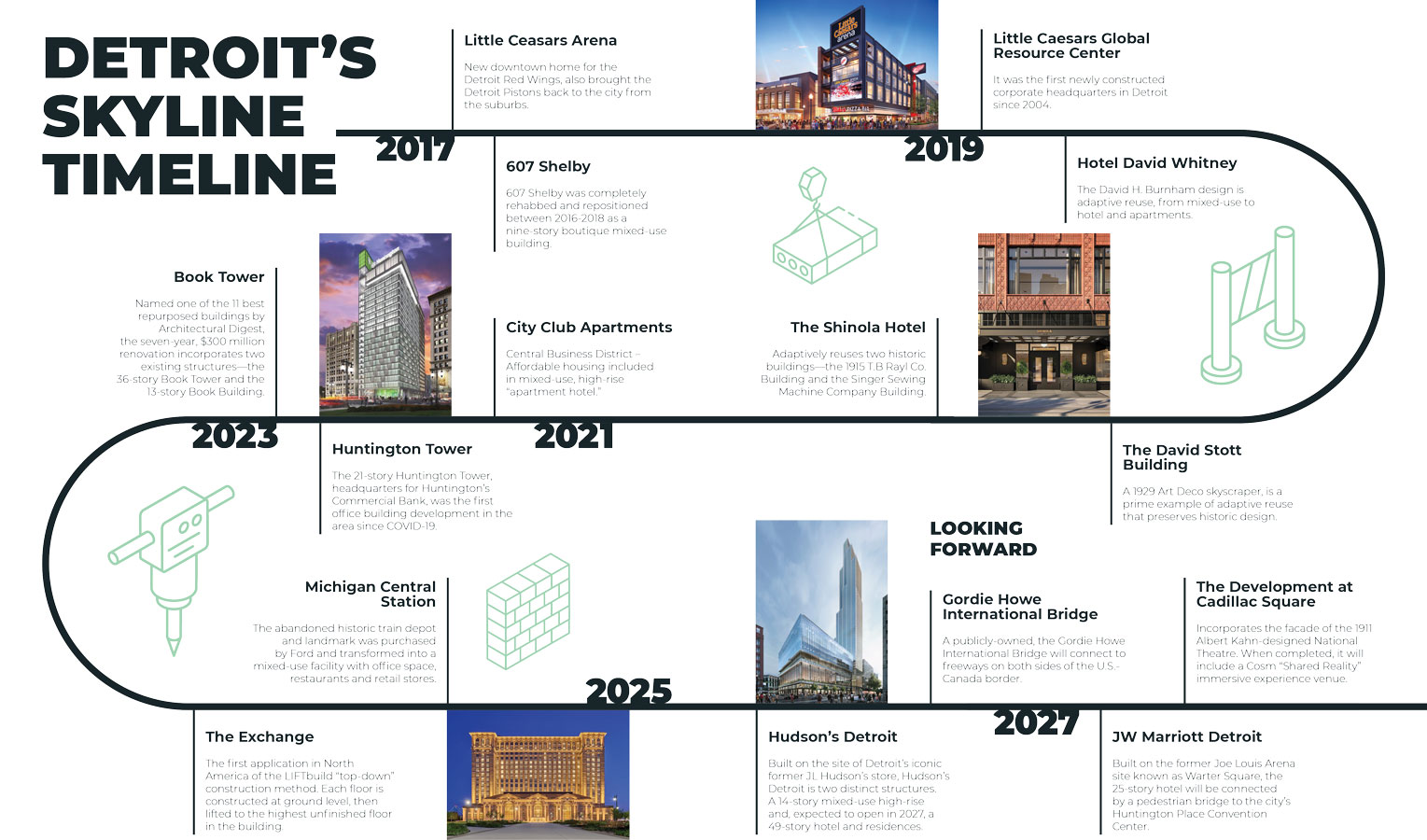
Award Winning Riverfront
The Detroit Riverwalk, with its parks, trails and cultural venues, attracts approximately 3.5 million visitors annually. Locals and tourists alike can take advantage of various community parks nestled in the downtown area.
That early riverfront investment didn't just kickstart Detroit's broader revival—it transformed Detroit's downtown into a nationally recognized, family-friendly destination known for its food, attractions and vibrant public spaces. Detroit's riverfront was named the best riverwalk in America by USA Today in 2021, 2022 and 2023.
The Detroit Riverfront Conservancy and its partners enhanced neighborhood connect ability through projects such as the Southwest Greenway and the Dequindre Cut.
The riverfront includes the Aretha Franklin Amphitheater, a 6,000-seat venue hosting concerts and cultural performances, 3.5 miles of greenway and multiple parks with playgrounds, water features, volleyball courts, skate parks, dog parks, pavilions and green space.
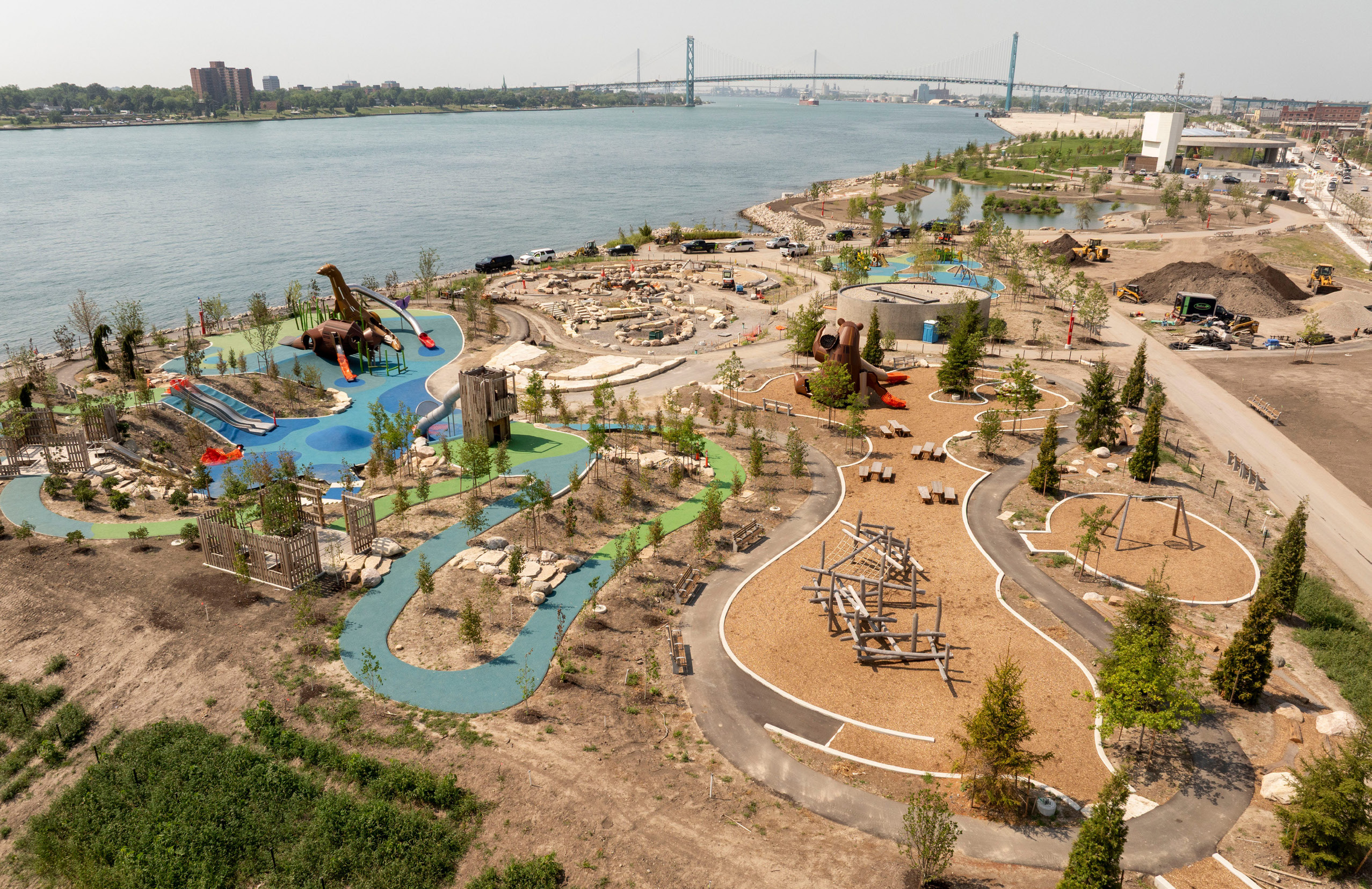
Shaping Spirit Plaza
Spirit Plaza, one of downtown's newest parks, was first inaugurated in 2017. The City of Detroit and City Council approved this new placemaking area in the center of downtown. The converted stretch of road was transformed into a community space for gatherings, games, music and food trucks. City Council approved its permanence in 2019.
Spirit Plaza connects to Hart Plaza, where most of the city's large events and festivals take place, such as the Detroit Jazz Festival, Motor City Pride, Movement Music Festival and African World Festival. In 2021, focus groups, surveys and public meetings were held for a proposed $9 million in improvements for Hart Plaza, and those improvements were completed in 2025.
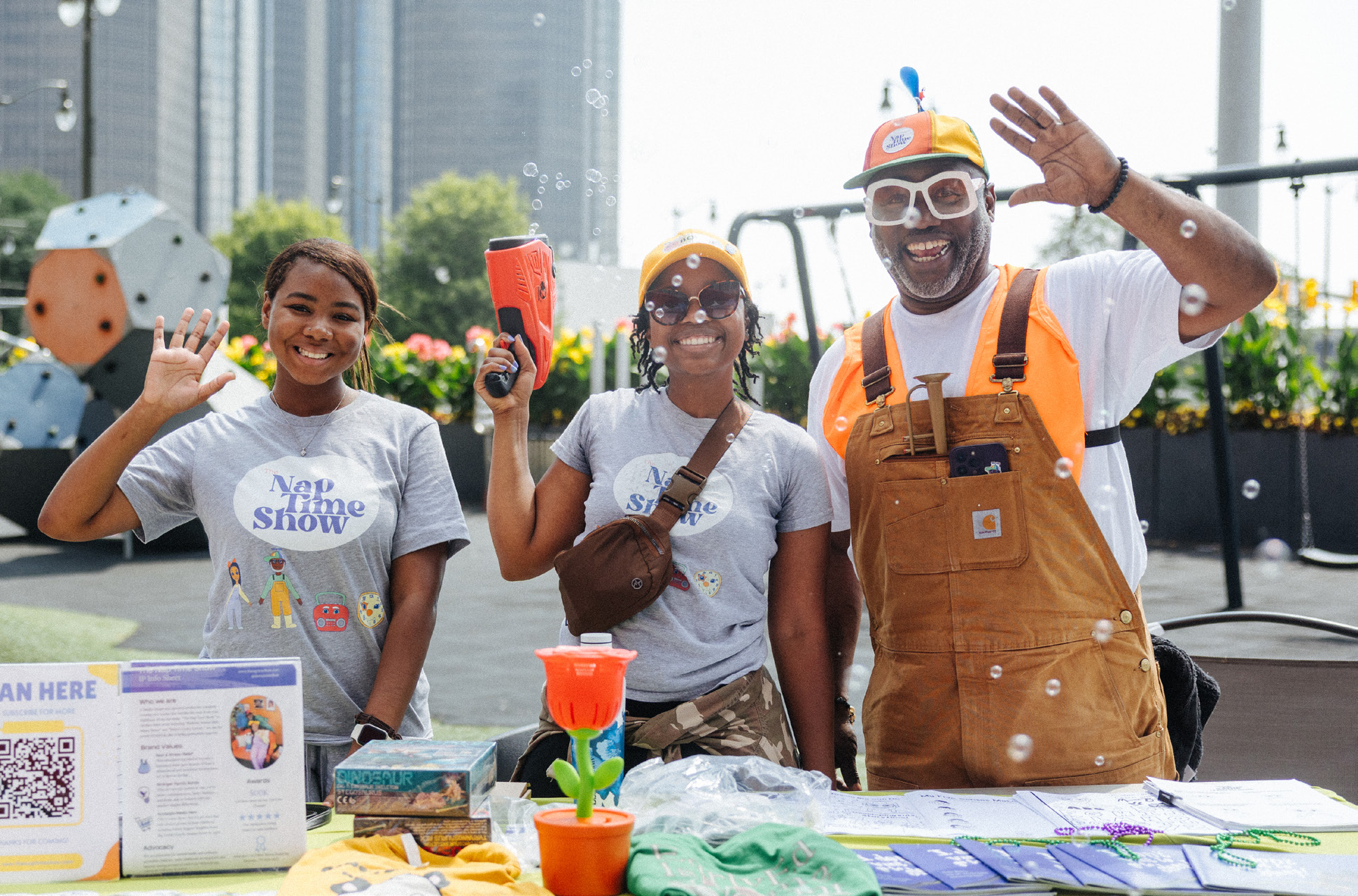
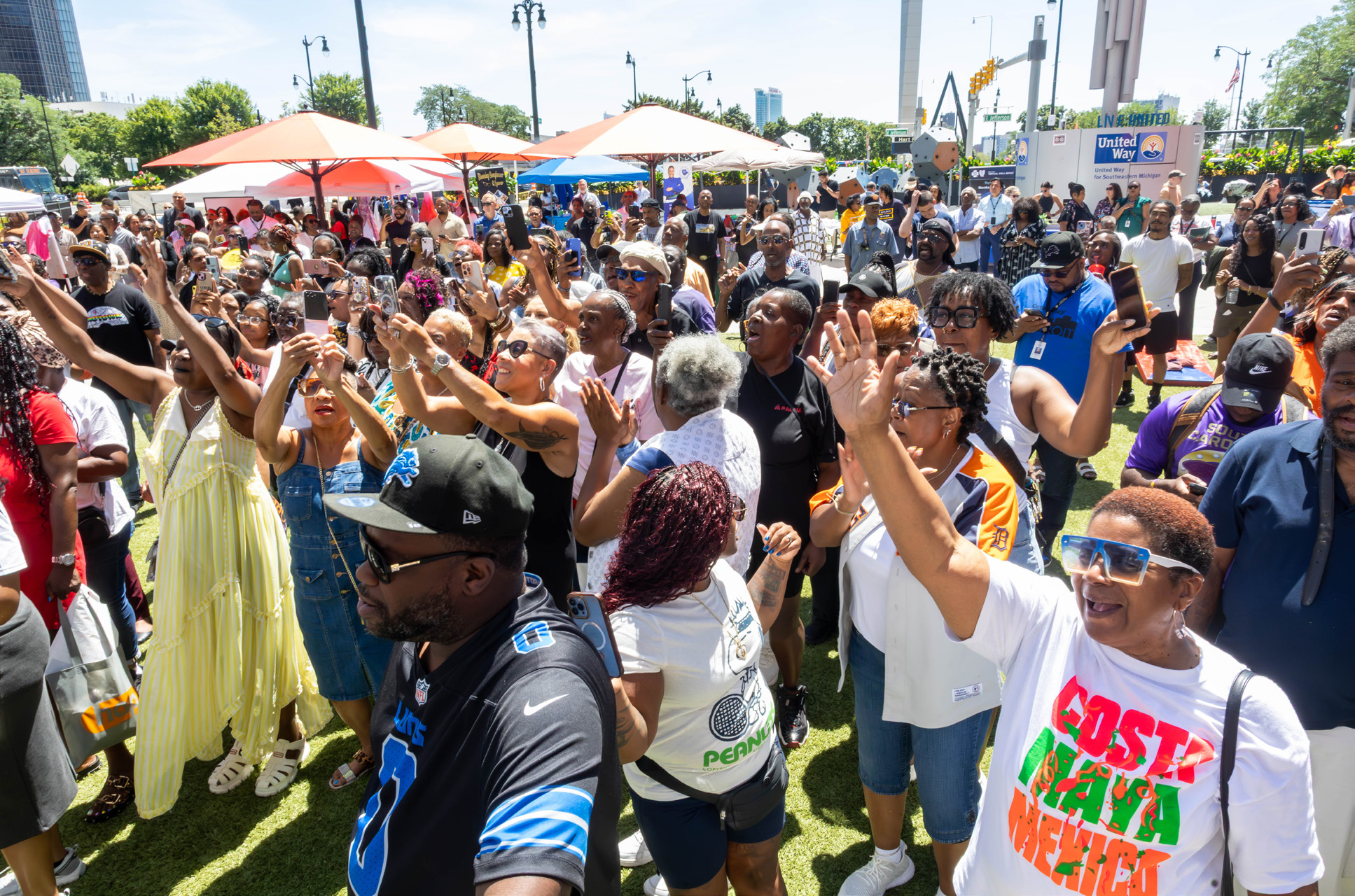
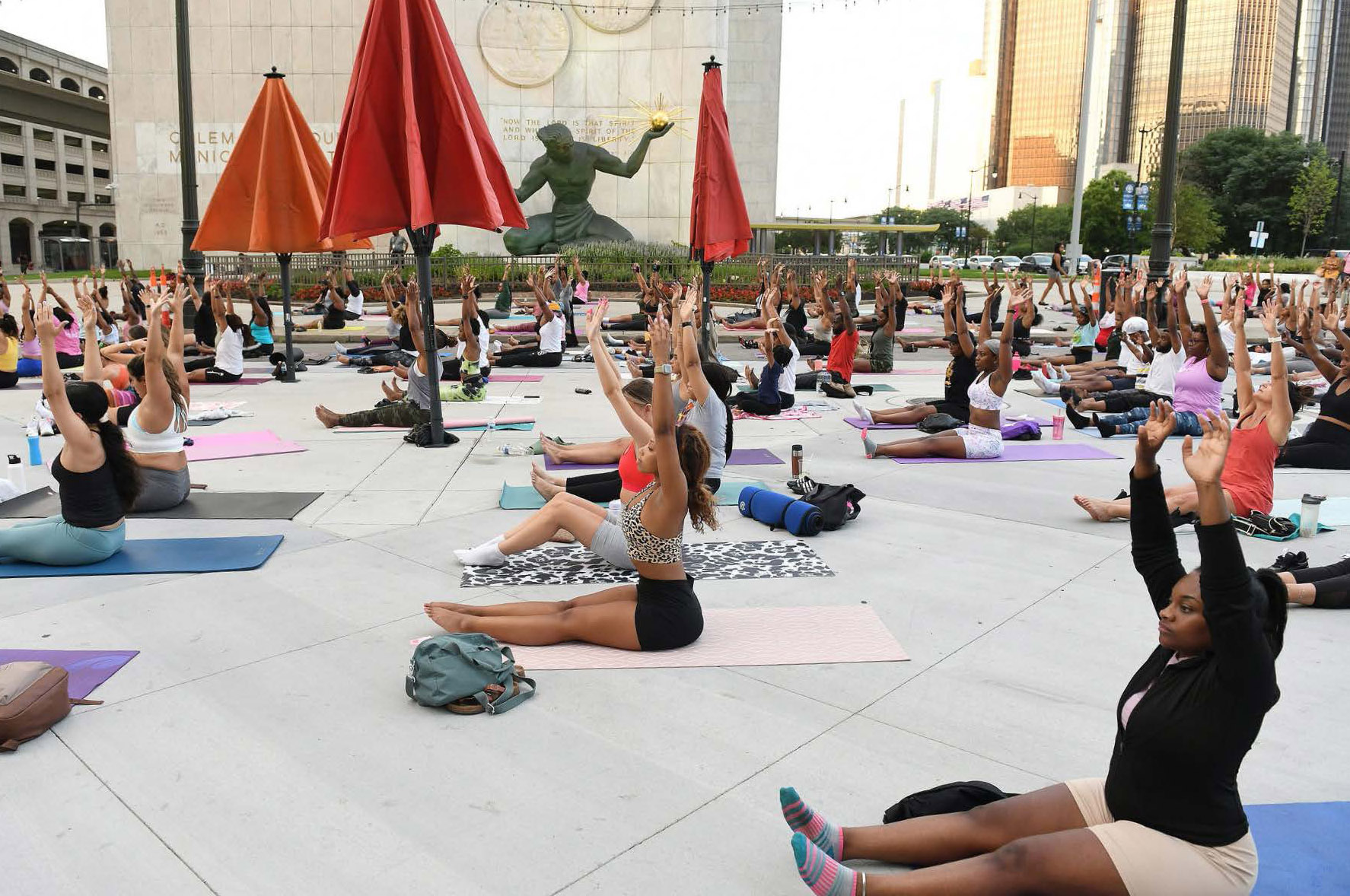
Hub and Spoke: Campus Martius Public Square
Leading the downtown turnaround is the Campus Martius Public Square. In 2025, the community space was named the No. 1 Public Square in the country in USA Today's 10 Best Readers' Choice Awards for the third year in a row.
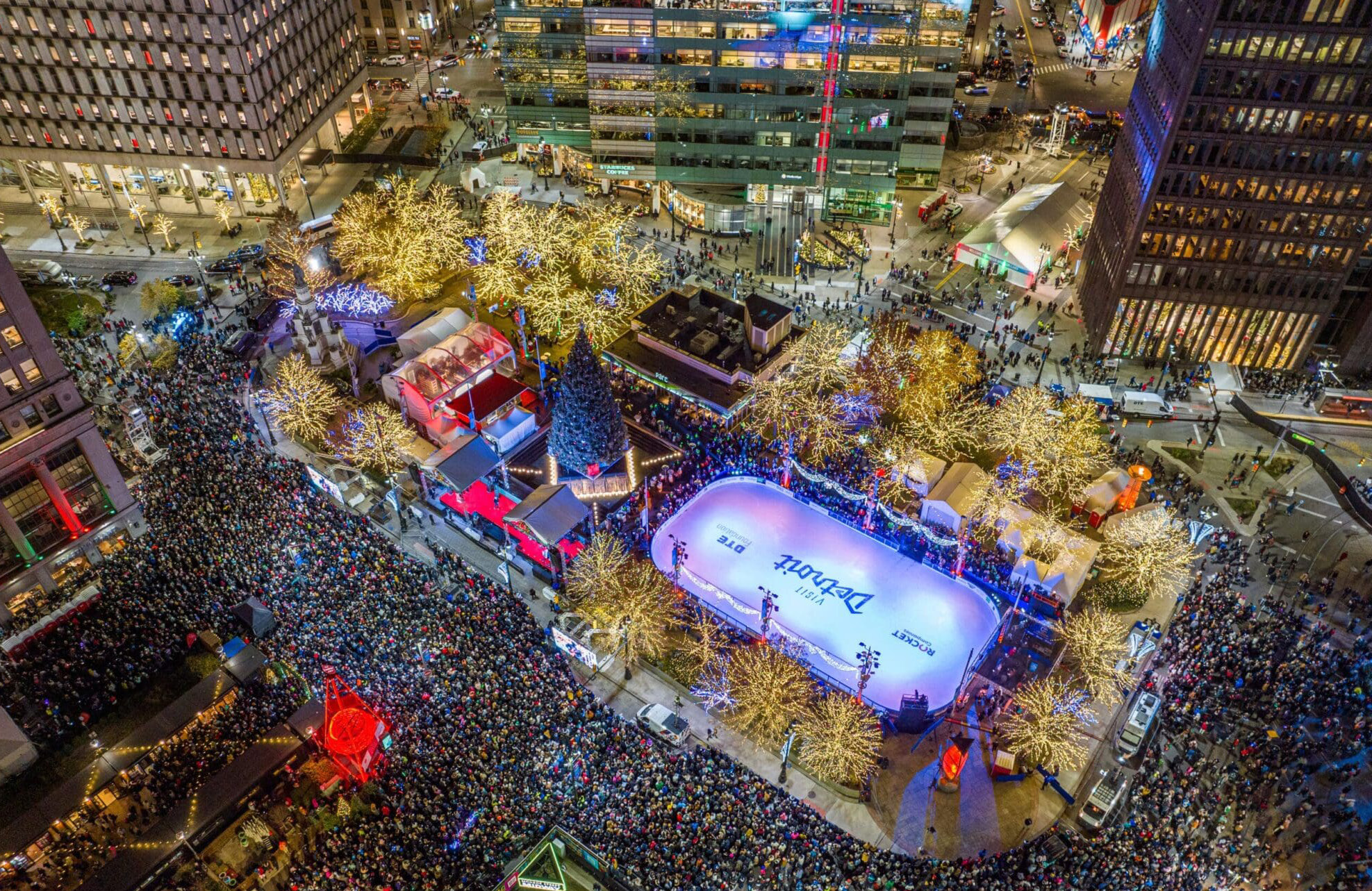
It hosts more than 1,200 events annually, such as Movie Nights in the D, a community evening for kids and adults alike. The Rink at Campus Martius is an award-winning outdoor ice skating rink that opens with the Christmas Tree Lighting Ceremony. During the summer, it transforms into The Beach, complete with 400,000 pounds of sand, lounge chairs and live entertainment. It has also been a venue for significant events like the 2024 NFL Draft, attracting 775,000 attendees. The city sprawls out from the Campus Martius hub into spokes reaching all the way up to Eight Mile Road.
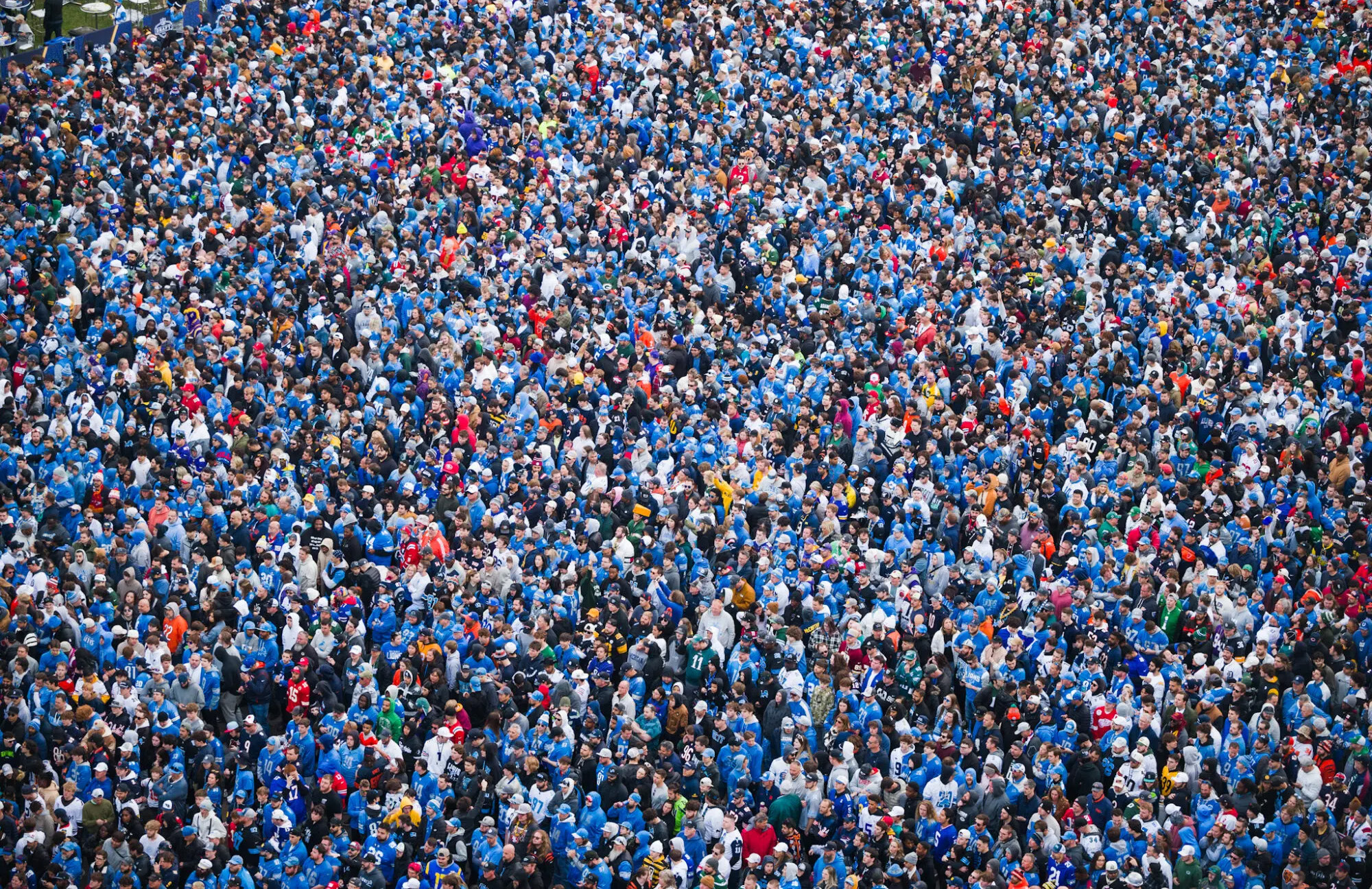
Detroit Developed Downtown without Sacrificing its Culture
In large cities across America, local businesses felt priced out of growing downtowns. Not in Detroit. Through programs like Motor City Match, the Gilbert Family Foundation and the Legacy Business Project, Detroit actively supports local businesses to flourish and grow downtown.
Despite downtown's changing landscape, Detroit never sacrificed its cultural or rich artistic history. The city preserves historic buildings through adaptive reuse, showcases murals from local artists and keeps opportunities open for longtime Detroit business owners.
Transformative developments such as Little Caesars Arena, Hudson's, Book Tower and Cadillac Square have redefined Detroit's downtown—encouraged by strategic public-private partnerships and city-led infrastructure support. Big and small downtown projects drive new investment, boost local employment and help position Detroit as a more connected, livable and economically resilient city.
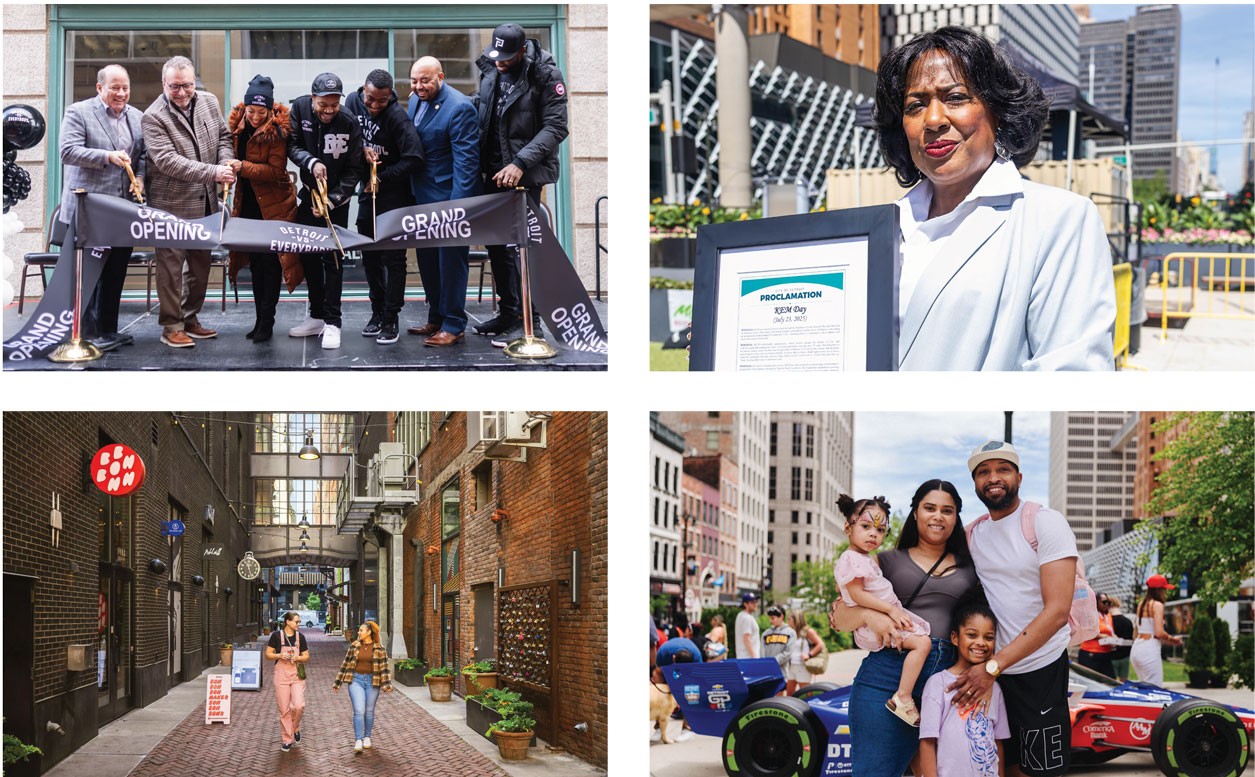
Detroit's Restaurants Anchor City's Revival
Detroit's growing restaurant scene is fueling economic revitalization while holding fast to the diverse identity of Detroit—transforming underused spaces into vibrant hubs where culinary traditions thrive.
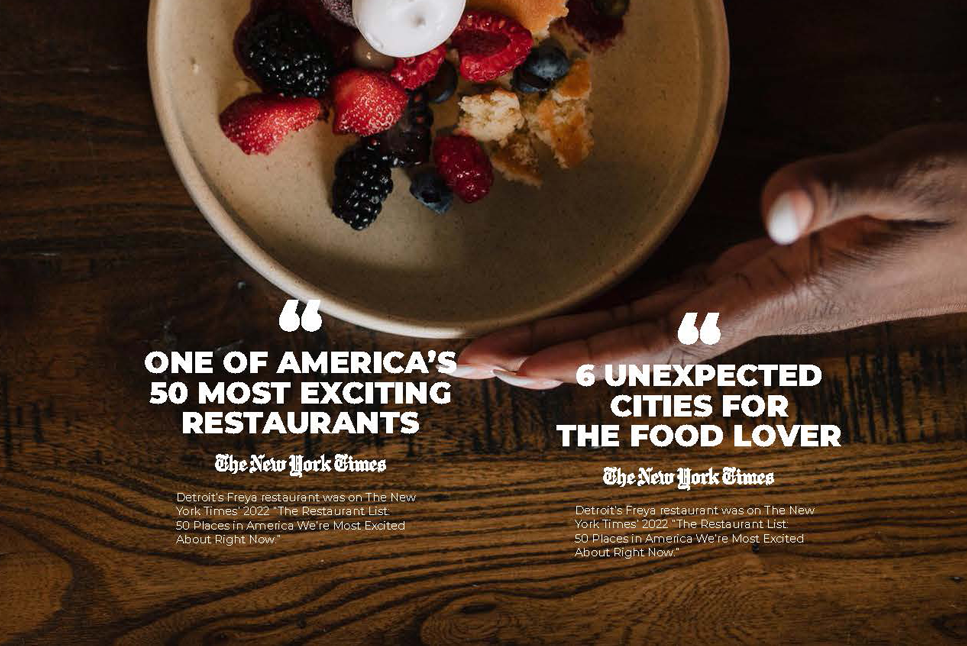
Cultural Institutions Define Detroit's Core
Detroit has long been a world-renowned place of culture, sports, art and history. It has the second biggest theater district in the country with more than 13,000 theater seats. Detroit's theater district spans from large-scale, historic icons like the Fox Theatre to brand new spaces like the Hilberry Gateway theatre on Wayne State University's campus. Detroit also has all four major sporting teams located downtown, including the Pistons basketball team which relocated from the suburbs in 2017.
The Detroit Institute of Art is the most widely known art museum in the city, however Detroit is home to many other museums such as the Museum of Contemporary Art Detroit, the Charles H. Wright Museum of African American History, the Motown Museum, the Detroit Historical Museum and the Michigan Science Center.
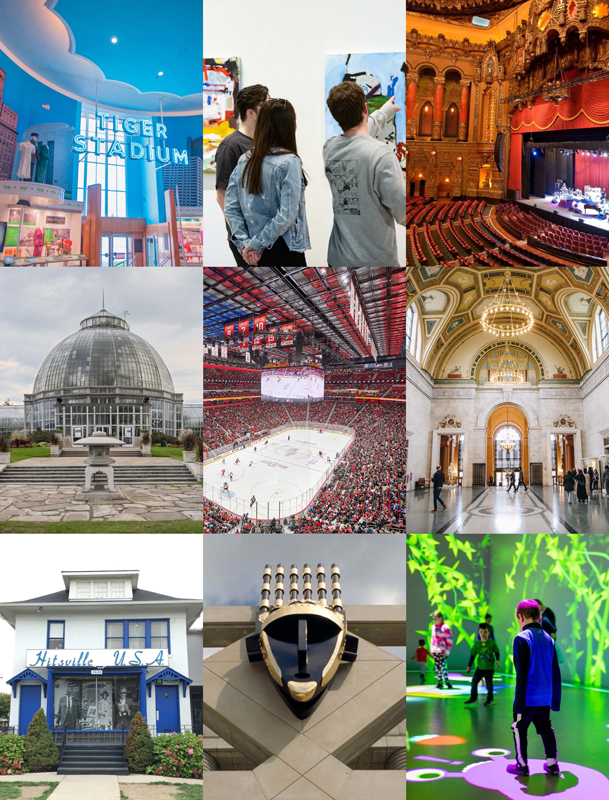
Detroit Celebrates its Past as it Looks to the Future
Detroit's downtown turnaround is the result of deliberate, multilayered investment—from reclaiming the riverfront and revitalizing public spaces to investing in local businesses and preserving the city's deep cultural roots.
Major developments and infrastructure improvements have brought new energy to once-vacant corridors, while walkable streets and vibrant gathering places have made the area more accessible and alive with activity. Whether it's through art, food, greenspace, music or festivals, Detroit continues to grow in a way that celebrates both where it's been and where it's going.
